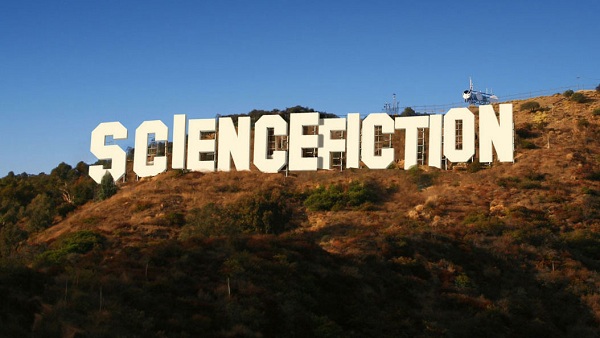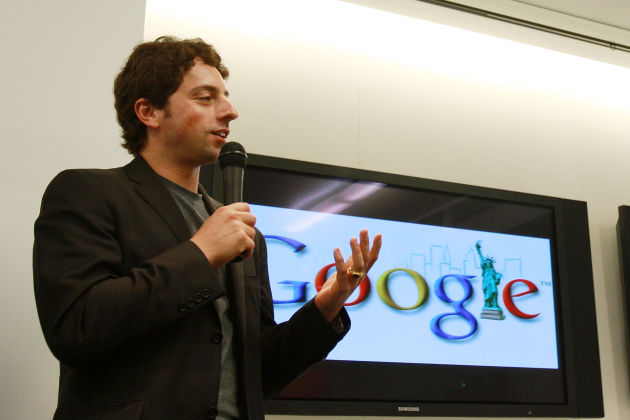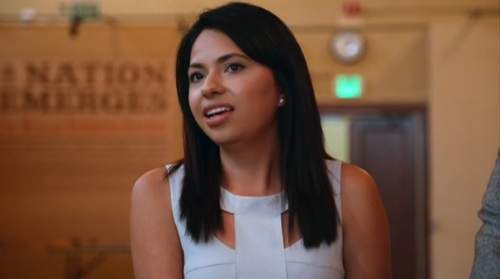A growing number of diverse writers around the world, including in the United States, are using fiction genres such as speculative, science, and fantasy to explore complex issues such as climate change, colonialism, globalization, violence against women, inequality, and other pressing concerns. During a recent panel discussion, writers and experts noted that these genres were once associated with predominantly Western, white, male perspectives, but are now being used to envision new worlds and futures that respond to present realities.
The panelists included Ericka A. Hoagland, Associate Professor & Coordinator of Graduate Studies in English & Creative Writing at Stephen F. Austin State University and co-author of Science Fiction, Imperialism, and the Third World; Libia Brenda, a Mexican writer, editor, and translator based in Mexico City and Climate Imagination Fellow at the Center for Science and the Imagination at Arizona State University; Ken Liu, an American author of speculative fiction and winner of numerous genre awards; Isis Asare, CEO/Founder of Sistah Scifi, the first Black-owned bookstore focused on science fiction & fantasy in the US, validated by the American Booksellers Association; and Samit Basu, an Indian novelist and filmmaker with a diverse body of work that includes science fiction, fantasy, and superhero novels, children’s books, graphic novels, short stories, and nonfiction.
Moderator Pilar Marero asked Professor Hoagland about her background in post-colonial literature and how science fiction is a useful vehicle for exploring ongoing legacies of colonialism in the context of globalization, climate change, civil wars, and economic interdependency among nations.
Hoagland responded by discussing two stories she shares with her students to help them understand how science fiction can be used to address current issues. The first story is “Mother Ocean” by Indian physicist and writer Vandana Singh, set in a future where rising sea levels have displaced millions of people. The protagonist, a member of a tribal community, befriends a blue whale and learns to communicate with it, realizing the importance of learning nature’s language to protect the planet. The second story is “Spider the Artist” by Nigerian American writer Nnedi Okorafor, which deals with the ecological damage caused by oil reserves in the Nigerian Delta. The protagonist befriends an AI spider sent to protect a pipeline and they bond over music, promoting the idea that we need to look at things differently to find a way forward.
Hoagland also noted the increasing diversity of science fiction writers, with more women and writers of color, and acknowledged that science fiction was once a “white male space boy club” but is now much more inclusive.
Asked, How science fiction has become more inclusive and why? Hoagland shared that initially, her perception of science fiction was shaped by stereotypical views that were not entirely untrue, especially when considering American science fiction in the mid-20th century. It was an exclusive and exclusionary space, with many women and writers of color not being published or promoted due to gatekeepers like John Campbell. However, with changing sensibilities and time, the perception of science fiction has evolved, and we are seeing more diverse writers gaining visibility and access to publishing and promotion. While some may still view science fiction as a juvenile or Western-centric genre, the increasing popularity and recognition of writers like NK Jemisin, who has won the Hugo three times in a row, signals a clear shift in audience preferences and a remolding of science fiction in beautiful and important ways that are helping the genre to progress.
Libia Brenda who is a Mexican writer, editor, and translator based in Mexico City and is also a Climate Imagination Fellow at the Center for Science and the Imagination at Arizona State University was invited to the fellowship along with other writers from around the world. She proposed to collaborate with all the writers and some scientists to create a science fiction story set in Mexico about a volcano that erupts in 2025, causing changes in the atmosphere and ecosystems. The story explores how people might live after such an event, and the collective effort includes writing, consulting with scientists, and artwork.
When asked how Mexican writers imagine a world where women are not assassinated, Libia explains that Mexico has a rich tradition of imagining futures, rooted in indigenous people’s beliefs, and that women authors are tired of dystopian futures dominated by commercial science fiction. Instead, they focus on imagining a world that is the product of change, and their stories are driven by hope. Mexican writers are also influenced by a mix of cultures, including the US, and they strive to create science fiction that is not just about technology but also explores different aspects of life.
Ken Liu, an American author of speculative fiction and winner of the Nebula, Hugo, and World Fantasy awards, as well as top genre honors in Japan, Spain, and France, explained that he is deeply interested in technology and how it can alter the way we think and construct the future. He notes that technology is not just machines, but also includes customs, calendars, maps, methods, and approaches to governance and capitalism, and that it is the manifestation of human mental patterns in the world. Liu believes that it is impossible to understand human nature without understanding human technology, and he is concerned about the model culture in technology and modernity that has been constructed largely by a small group of people who have imposed their view on the rest of the world. Liu’s work aims to reimagine modernity using alternative technologies, such as his invention of the “Silk Punk” genre, which defies traditional boundaries and uses alternative ways of thinking to reimagine the future. He believes that it is important to challenge the arbitrary boundaries between different forms of storytelling and to consider why certain stories are deemed science fiction or mythology. Ultimately, Liu believes that we need to question the dominant view of how technology should be used and wielded and to explore alternative ways of imagining and constructing the future.
Isis Asare, CEO and Founder of Sistah Scifi, the first Black-owned bookstore in the US focused on science fiction and fantasy, one of the panelists shared her views as a black, queer woman in the US. Isis finds science fiction to be a magnet that helps her explore beyond the constraints of societal norms and expectations. For many science fiction readers, it’s not about escapism, but rather a chance to develop new perspectives and ignite their imagination, especially in a world that constantly tells them what they cannot do.
Sistah Scifi sits at the intersection of Afrofuturism, which Isis explains is a massive intersection of imagination, technology, the future, and liberation, connecting African diaspora cultures to science and technology. While some definitions of Afrofuturism may include mysticism, fantasy, and folklore, Isis personally defines it as the merging of African diaspora culture with science and technology, excluding those elements. The success of Black Panther has brought Afrofuturism to the forefront, prompting more museums and exhibitions to showcase the genre across various media, including literature, music, art, movies, and television.
Isis believes that Black Panther is starting a movement in Black speculative fiction, similar to how the film Blacula sparked a cultural movement by reclaiming white-centric folklore with a Black leading character and infusing African culture. Historically, Black literature has been concentrated in urban fiction and celebrity biographies, with less focus on Black speculative fiction, even though works by authors such as Toni Morrison and Alice Walker contain aspects of it. Sistah Scifi and other platforms promoting Black speculative fiction are contributing to a growing interest in the genre, which Isis finds exciting.
The last panelist Samit Basu, is an Indian novelist and filmmaker. Samit Basu’s book “The City Inside” is a near-future science fiction novel based on his concerns about the future, living in a country facing multiple apocalypses on a daily basis. He wanted to capture the everyday reality of living in an age of permanent surveillance and permanent distraction, where everything is mashed together. While his intention was to capture the reality of his everyday life, everyone who reads his book perceives it as a dystopia, which led him to realize that dystopia is a function of distance. Basu notes that every large country is incredibly diverse within itself and engaging with American Science Fiction and Fantasy over the last decade alone has taught him so much more about the vast differences within America that he never saw from the other half of the planet. He found it fascinating that despite the specific local settings of the problems, the engine of the local cultures where people are experiencing them, the world is dealing with the same problems, the various competing monocultures that we’re all dealing with in a world where communication and technology are distributed incredibly unequally and incredibly diversely to various segments of society. Basu’s book set in Delhi, India, received a positive response from readers in America, and he was surprised that the fact that it was set in Delhi wasn’t as big a barrier as he thought it would be with regard to Science Fiction and Fantasy in general. He turned to SF and Fantasy because he thought they would give him more freedom when he encountered publishing culture in the US and the UK, but he was shocked to find that it was mostly one of the constraints, that working in the genre was actually more limiting, not less, in ways that he found very surprising.
#ScienceFiction #AlternativeRealities #FutureFiction #ClimateChangeFiction #DiverseVoices #Afrofuturism #SilkPunk #SistahScifi #NnediOkorafor #VandanaSingh #KenLiu #LibiaBrenda #ClimateImagination #MexicanScienceFiction #InclusiveFiction #WomenInScienceFiction #ScienceFictionReads









